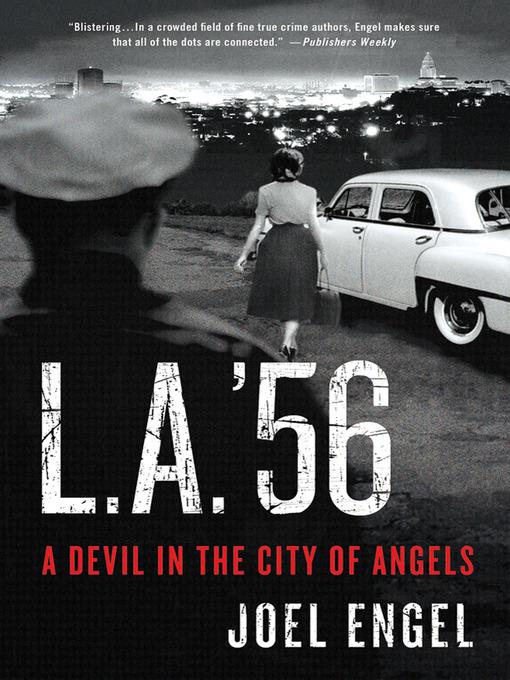
L.A. '56
A Devil in the City of Angels
کتاب های مرتبط
- اطلاعات
- نقد و بررسی
- دیدگاه کاربران
نقد و بررسی

February 13, 2012
Engel, a former New York Times and L.A. Times reporter (What Would Martin Say?), has expanded the concept of “the wrong man” in his blistering true crime book of a serial rapist’s reign of terror in the Jim Crow Los Angeles of the mid–late 1950s. In the author’s gritty account of a tormented Willie Roscoe Fields, a war-weary veteran once sentenced for attempted rape, he gives a snappy, hard-edged feel to this black man’s terrifying sexual rampage against women snatched from cars in the city’s lovers’ lanes. The insightful narrative puts the brutal, senseless incidents at the core of the book in context with snippets of historical events of racism, betrayal, and police corruption. When Todd Roark, a black LAPD cop, is pulled in for the rapes in retaliation for dating a white woman, only one officer believes in his innocence and sets a clever trap to snare the real criminal. In a crowded field of fine true crime authors, Engel makes sure that all of the dots are connected and justice has its say.

April 1, 2012
True-crime story of rape and racism in postwar Los Angeles. The narrative has all the elements of a classic film noir and then some: a handsome detective who falls for a beautiful crime victim who narrowly escapes the clutches of a monstrous rapist; the innocent man, railroaded into jail for a capital crime he didn't commit by the prejudiced police of a corrupt city; a surprise ending with a stakeout and shootout that brings about justice in the end. But this being a story based on real life, the epilogue is not so tidy, least of all for the railroaded suspect, an African-American ex-cop who'd been forced out of the department for dating a white woman. In the summer of 1956, Los Angeles was in the thrall of a serial rapist who trolled lovers' lanes in tonier districts with a toy sheriff's badge and a flashlight. He would interrupt young lovers, flash his badge and threaten to arrest the couple for vice crimes. Then he would deposit the young man a few blocks away and return for his prey. On his trail was the talented detective Danny Galindo, a Mexican-American war hero and friend of Dragnet's Jack Webb, who would feed him the occasional story line. ("Give it to Galindo," a catchphrase on the show, was Webb's way of tipping his hat to his LAPD pal.) Galindo worked on some of the city's most notorious crimes, from the Black Dahlia to the Manson Family murders, but he was particularly proud of this case in which he freed an innocent man and found true love. Engel (Gene Roddenberry: The Myth and the Man Behind Star Trek, 1994, etc.) gets in the head of the rapist, which may be taking liberties with the facts, but it makes for a riveting, novelistic read. Disturbing social history in the form of a fast-paced thriller.
COPYRIGHT(2012) Kirkus Reviews, ALL RIGHTS RESERVED.

April 1, 2012
Engel uses a wrongful conviction case to illuminate the racism and corruption rampant in the LAPD before the first reforms. In 1956, Willie Roscoe Fields, who went AWOL during WWII and had been AWOL from the job scene pretty much ever since, found a skill he used over and over again, impersonating a cop in lovers' lanes, separating couples, and raping the young woman involved, usually white, as he pretended to drive her to the station house. The LAPD pinned the crimes on a black former cop, who had been ostracized for dating a white woman. A Latino detective was the only cop to sense or care that the wrong man had been convicted and sent to prison. His pursuit of justice serves as the backbone of the book. This is both an examination of an especially distressing racist rush to judgment and an intriguing portrait of L.A. and the LAPD in the '50s. As such, it should interest James Ellroy fans.(Reprinted with permission of Booklist, copyright 2012, American Library Association.)

























دیدگاه کاربران